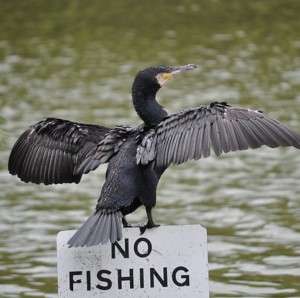#BOUasm21 – Resources
 Birds and people: from conflict to co-existence
Birds and people: from conflict to co-existence
9 November 2021
Attendee resources
ATTENDEE GUIDE – your guide to all you need to know about your attendance
PROGRAMME
ABSTRACTS (download)
ONLINE SCHEDULE APP with built in time converter
SLACK GUIDE – our guide to online networking at a BOU Zoom conference
SLACK APP – link to our online networking app
SLACK – link to Slack website for all things Slack
CODE OF CONDUCT
WORLD CLOCK including UTC time conversion for your local time
Important note: all times given on these conference pages are UTC. Use the above online scheduler app or ensure you check your local time for the event here.
Reminder: you been sent a single email from Steve Dudley (BOU) via Zoom with an access link to the Zoom conference. Keep this email safe as it is your personalised to you. If you have lost your access email then contact Steve Dudley.
BOUasm21 recording: the meeting will be recorded and registration includes access to the recording from 12 November – 14 February 2022. We will send you a link to these recordings on 12 November.
With this format all the Zoom presenters will also tweet a summary of their presentation on the conference tag on Twitter and we’ll also aim to have some Twitter-only presentations during the Zoom programme breaks.
Conference aims and scope
Interactions between humans and animals are becoming increasingly frequent, as wild habitats shrink and human presence expands throughout the world. Conflicts are one of the outcomes of this increased interaction, with severe consequences for both wildlife and people. A global issue, conflicts can arise across a diversity of ecosystems, species and circumstances. Further, they are more complex than a first glance might suggest, involving not just ecological arguments, but also economic, cultural, social and political disputes.
Avian species are often at the centre of such conflicts. Examples include conflicts over birds and agricultural interests, forestry, and public health. Such situations severely threaten not just the conservation of birdlife, but also human lives, livelihoods, and well-being. The first step to overcoming these problems is to recognise and understand the full diversity of drivers that cause conflicts to emerge, persist and escalate. Only then may we move towards fostering mutually beneficial relationships between birds and people.
In reflection of the complexity of these issues, this conference will aim to cover the following topics:
- Examples of conflicts that exist between birds and people including conflicts with agriculture, hunting, invasive species, reservoirs or vectors of infectious disease and economic damage;
- Approaches that aim to understand the drivers of conflicts between birds and people and better focus possible solutions;
- Examples from research and practice that can inform coexistence between bird conservation and other human activities.
This pioneering conference will facilitate a platform to explore the potential of a) science to provide data-driven solutions to this complex topic and b) the collaboration between multiple disciplines (e.g. natural scientists, social scientists and ecologists) and other stakeholders to develop fresh, interesting and effective approaches to conflicts between birds and people.
New parallel conference format
The BOU strives to make all our events inclusive and accessible. To help achieve this we now run all in-person and virtual Zoom conferences as dual platforms events with a Twitter conference running alongside the main in-person/virtual event.
Every presenter at a in-person/virtual event will now be required to tweet a summary of their presentation as part of the parallel Twitter event. We will also include additional Twitter-only presentations during the breaks of the in-person/virtual event.
For BOUsci20, the virtual Zoom event attracted an ‘in-the-room’ audience of 375 registrants, but the parallel Twitter event had over 550 participants, an ‘in-the-room’ audience of >1,600 people and a wider reach of 750,000 – from right around the world.
Unlike other social media platforms, Twitter is genuinely open access as you don’t even need an account to follow the Twitter event content. The BOU knows Twitter inside out having championed its use to promote ornithological research for the last decade and we’ve been running and sponsoring Twitter conferences for some years. Because of this, take-up within our community is very high – 75% of BOU2019 delegates were on Twitter!
Presenters will be provided with extensive guidelines on how to tweet your presentation on Twitter, and you will be able to use either your personal or institute account. If neither of these are available, then we the BOU social media team will be on hand to discuss other options for you to present your work on Twitter.
See also Presenting at a Twitter conference
Keynote presenters
 Nils Bunnefeld | University of Stirling, UK
Nils Bunnefeld | University of Stirling, UK
Online tech and games in conservation – engaging a billion people worldwide
View Nils’ profile
 Martina Carrete | Universidad Pablo de Olavide, Spain
Martina Carrete | Universidad Pablo de Olavide, Spain
Challenges facing invasive birds: from scientific problems to public acceptance
View Martina’s profile
 Isla Hodgson | University of Stirling, UK
Isla Hodgson | University of Stirling, UK
Just the tip of the iceberg? Looking beneath disputes to understand conflicts over raptors and driven grouse shooting
View Isla’s profile
 Richard Sherley | University of Exeter, UK
Richard Sherley | University of Exeter, UK
Seabirds and fisheries: competition, conflict and coexistence
View Richard’s profile
Scientific Programme Organisers
Dr Barry McMahon | Chair | University College Dublin, Ireland
Dr Juliette Young | National Research Institute for Agriculture, Food and the Environment, France
Dr Isla Hodgson | University of Stirling, UK
Dr Bea Arroyo | Instituto de Investigación en Recursos Cinegéticos/Consejo Superior de Investigaciones Científicas, Spain
Dr Francis Daunt | Chair, BOU Meetings Committee | UK Centre for Ecology & Hydrology
Images
Great Cormorant | CC0 PD

